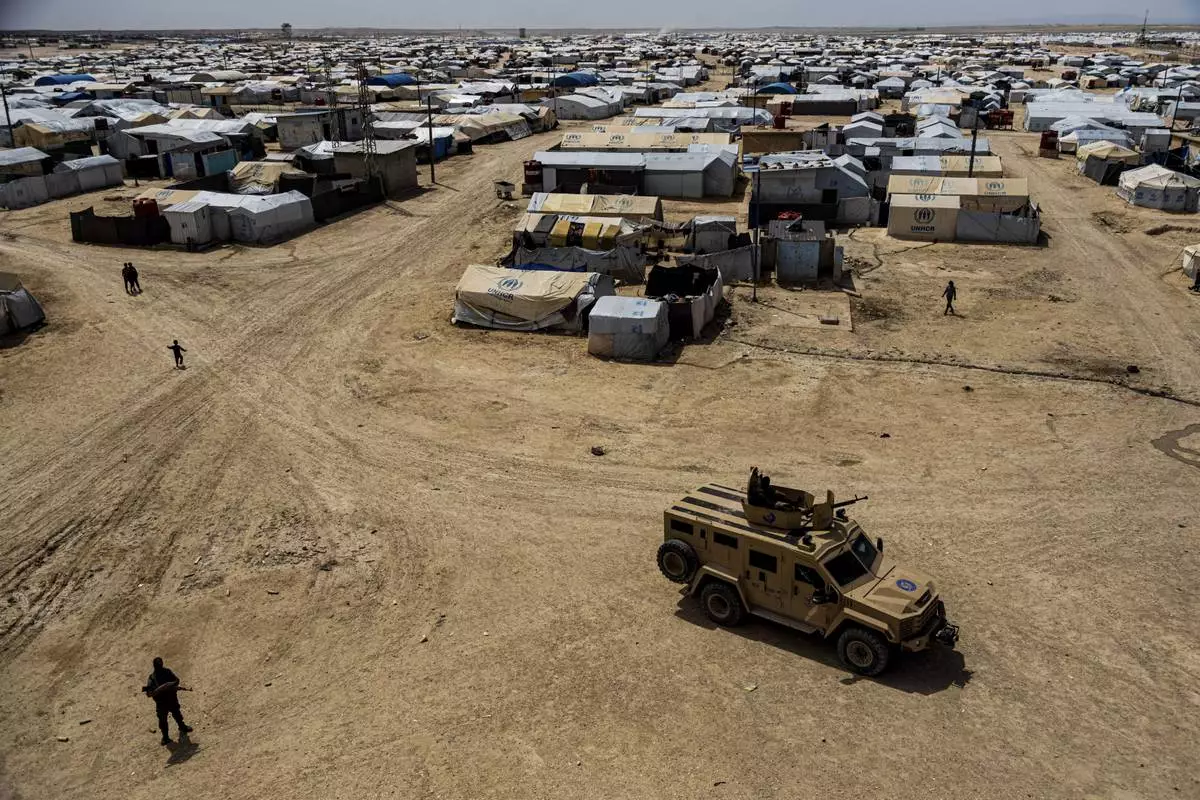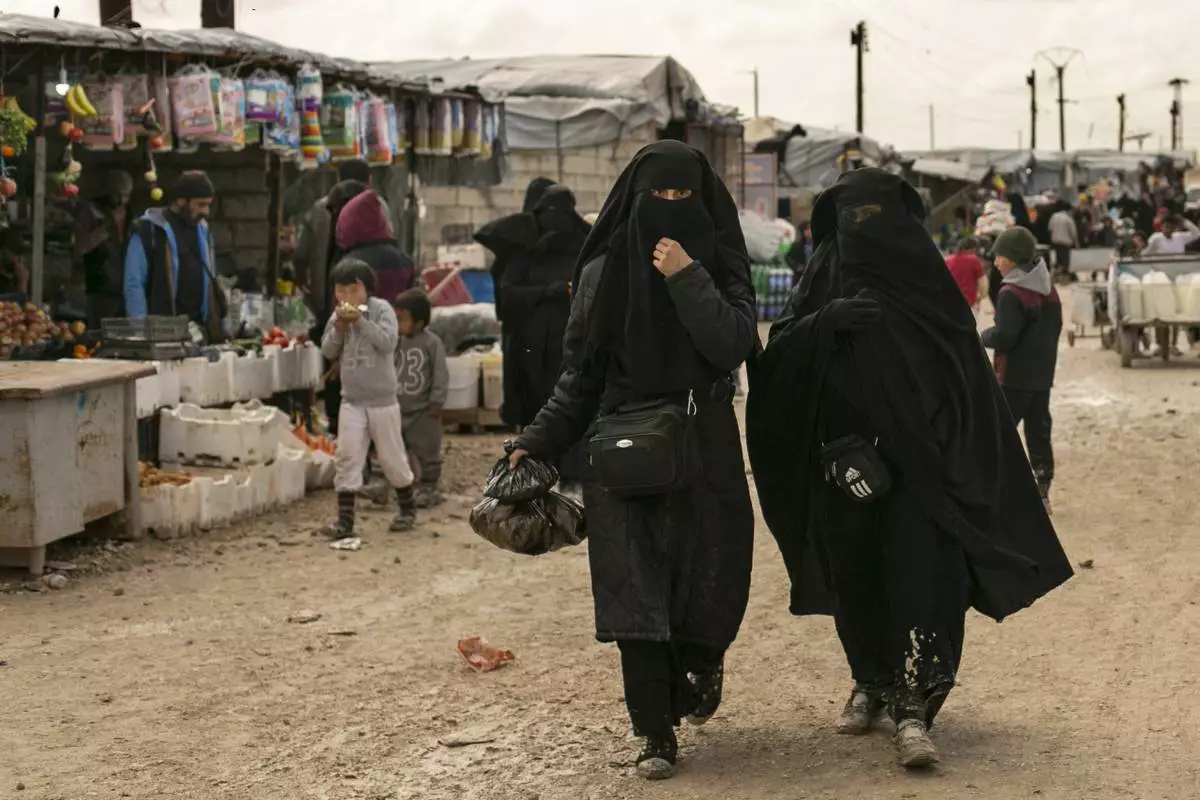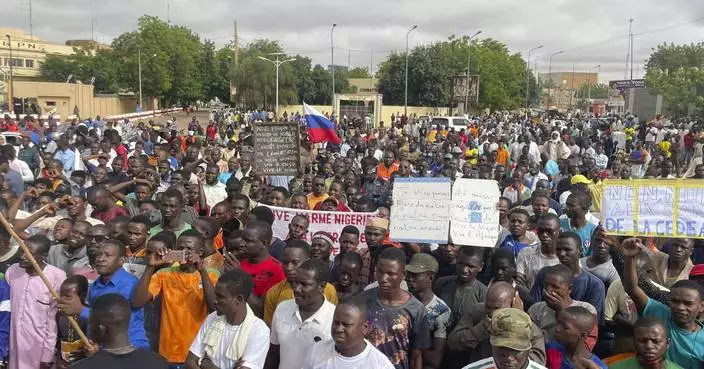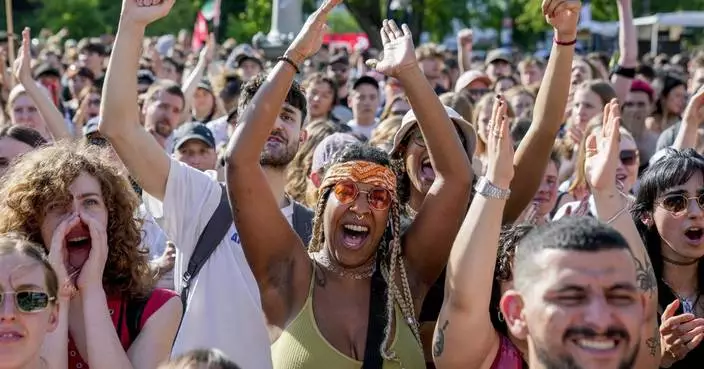After nearly collapsing onstage recently, country singer Drake White has revealed he has a brain condition that disrupts normal blood flow.
White told "People" magazine that he's known about the condition since his diagnosis in January and he has been undergoing a series of procedures to cut off blood flow to the affected vessels.
He says he's been diagnosed with arteriovenous malformation, which is an abnormal tangle of arteries and veins in the brain.

FILE - In this Wednesday, Nov. 8, 2017 file photo, country singer Drake White arrives at the 51st annual CMA Awards, in Nashville, Tenn. White revealed he has a brain condition called arteriovenous malfunction after nearly collapsing on stage. (Photo by Evan AgostiniInvisionAP, File)
The 35-year-old "Livin' the Dream" singer had to be helped by a band member after nearly falling mid-performance last Friday during a concert in Roanoke, Virginia. The magazine said it was unclear if his near-collapse onstage was related to his condition or his treatment.
BEIRUT (AP) — The United States has repatriated 11 of its citizens from sprawling camps in northeastern Syria that house tens of thousands of family members of suspected Islamic State militants, the U.S. State Department said Tuesday.
The repatriation was the largest Washington has carried out from the camps to date, U.S. Secretary of State Antony Blinken said in a statement. Five of the 11 citizens brought back were children, and one non-U.S. citizen child -- the 9-year-old sibling of one of the other children -- was also brought with them.
As part of the same operation, the U.S. facilitated the repatriation of 11 other camp residents, eight of them children, to Canada, the Netherlands and Finland, the statement said.
Although the pace of repatriations has picked up -- neighboring Iraq recently returned hundreds of its citizens -- many countries remain reluctant to bring back citizens from the al Hol and al Roj camps, which now hold about 30,000 people from more than 60 countries, most of them children.
The camps are run by local authorities affiliated with the U.S.-backed, Kurdish-led Syrian Democratic Forces. The SDF and its allies, including U.S.-led coalition forces, defeated the Islamic State group in Syria in 2019, ending its self-proclaimed Islamic “caliphate” that had ruled over a large swath of territory straddling Iraq and Syria.
Human rights groups have regularly reported on what they describe as inhumane living conditions and abuses in the camps and in detention centers where suspected IS members are housed.
“The only durable solution to the humanitarian and security crisis” in the facilities “is for countries to repatriate, rehabilitate, reintegrate, and where appropriate, ensure accountability for wrongdoing,” Blinken said in the statement.

FILE - Kurdish forces patrol al-Hol camp, which houses families of members of the Islamic State group in Hasakeh province, Syria, on April 19, 2023. The United States has repatriated 11 of its citizens from sprawling camps in northeastern Syria that house tens of thousands of family members of suspected Islamic State militants, the U.S. State Department said Tuesday May 7, 2024. (AP Photo/Baderkhan Ahmad, File)

FILE - Women shop in the marketplace at al-Hol camp, home to families of Islamic State fighters, in Hasakeh province, Syria, on March 31, 2019. The United States has repatriated 11 of its citizens from sprawling camps in northeastern Syria that house tens of thousands of family members of suspected Islamic State militants, the U.S. State Department said Tuesday May 7, 2024. (AP Photo/Maya Alleruzzo, File)












